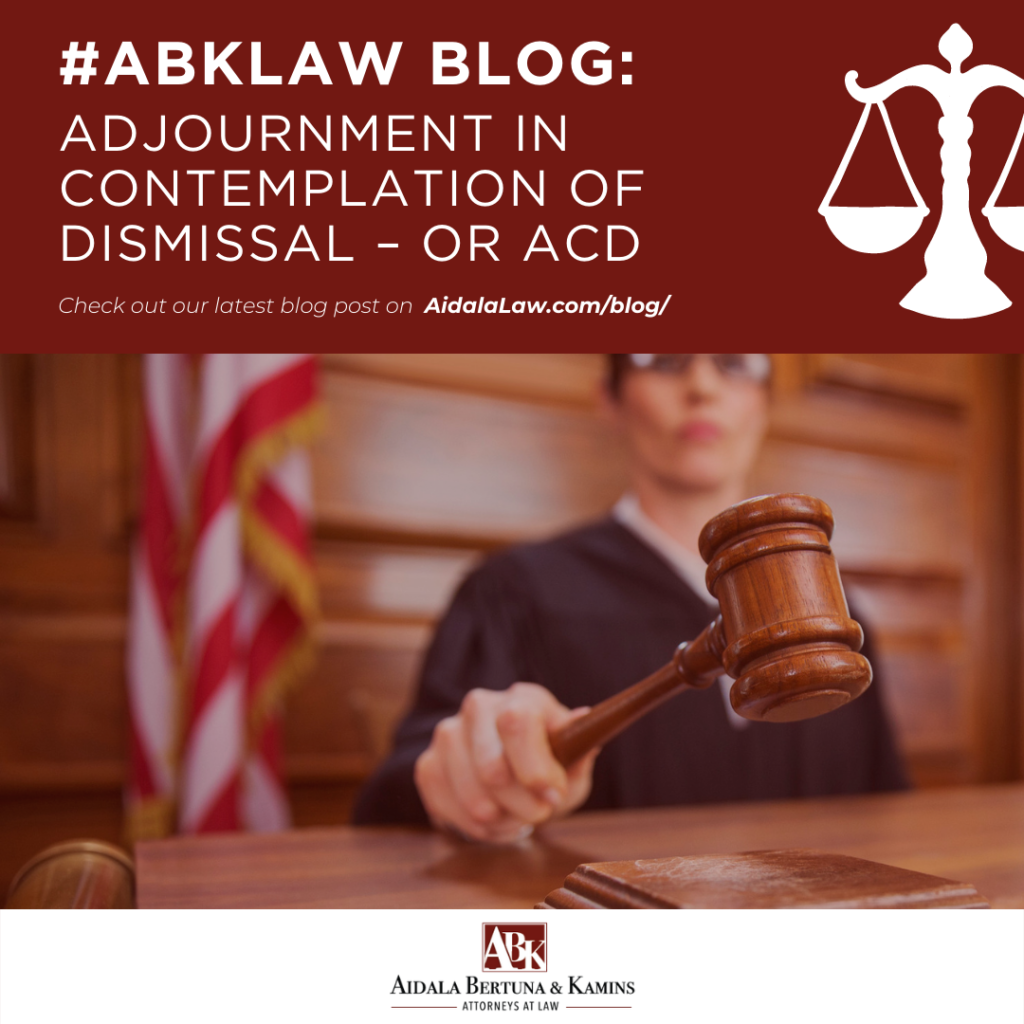What is an ACD in NYS?
The Adjournment in Contemplation of Dismissal – or ACD as it is known by those who practice in the justice system – provides for a full dismissal of the charges in the interest of justice following a period of time, usually six months, as long as the defendant does not get rearrested during the adjourned period.
In certain criminal cases, a defendant could receive an Adjournment in Contemplation of Dismissal offer. This means that all criminal charges currently filed against you may be dismissed and the record of these charges will be sealed after a six month period of “good behavior.” If the defendant agrees to accept an Adjournment in Contemplation of Dismissal offer and violates any of its terms, the original charges may be reinstated by the prosecution.
It is important to understand that you are not making an admission of guilt when you accept an Adjournment in Contemplation of Dismissal offer under ACD 170.55.
Does ACD show up on a background check?
In the case of the ACD resolution, the case is dismissed and sealed. Therefore, there is no criminal record. … It does not give you a criminal record. It may show up on certain FBI background checks, especially if within the 6-month period. However, usually after 6 months, it will not show up. If an employer asks you if you have been convicted of a crime, the answer is “no.”
Is an ACD a plea bargain?
No! An ACD is not a conviction, a plea bargain, or probation. The defendant need not admit any guilt or defend their innocence. An ACD is a highly advantageous outcome in a misdemeanor case.
Is an ACD a pending charge?
Sort of. During the period between the ACD acceptance and the dismissal, the charges appear as a pending case, and are accessible to the public – including employers.
Can I file a still file a lawsuit?
If a defendant accepts an ACD, there may be civil consequences effecting their ability to file future lawsuits. While an ACD does not affect a person’s right to sue the police for false arrest, false imprisonment, or excessive force, it will preclude claims that require a plaintiff to show that a criminal proceeding was terminated in his favor, such as a claim for malicious prosecution.
What if I get re-arrested within the 6-month period?
After acceptance of an ACD, the defendant is required to “stay out of trouble” during the adjournment period or else the criminal charges may be restored by the prosecutor.
Should I accept the ACD?
Generally speaking, an offer of an Adjournment in Contemplation of Dismissal (“ACD”) to resolve criminal charges is usually a very attractive plea bargain offer to a criminal defendant. After all, the most important goal for any criminal defendant should be the dismissal of all criminal charges. Also, individuals receiving an ACD usually have their cases dismissed and sealed after 6 months. Understanding this, are there any negative or unforeseen collateral consequences that come with the acceptance of an ACD?
Under CPL Section 170.55, an ACD is an adjournment of the criminal proceeding against the defendant for a certain period of time — at the end of which, the charges against the defendant will be dismissed.
Do you have additional questions?
Contact criminal defense attorney Michael Jaccarino or the Law Offices of Aidala, Bertuna & Kamins, should you have additional questions for a New York or Brooklyn Criminal Defense Lawyer.
Call our office to learn more, or if you have a particular legal matter that requires immediate attention: 212-486-0011 or email us at Info@AidalaLaw.com.
#NYC #NewYorkLaw #NYLawFirm #NYAttorney #ABKLaw #TrialAttorney #CriminalDefense #CivilLitigation #Appellate #AttorneyDisciplinary #RealEstate #PersonalInjury



